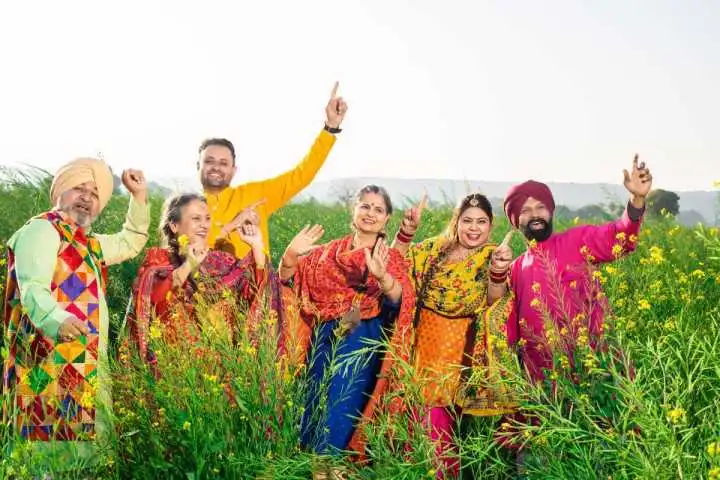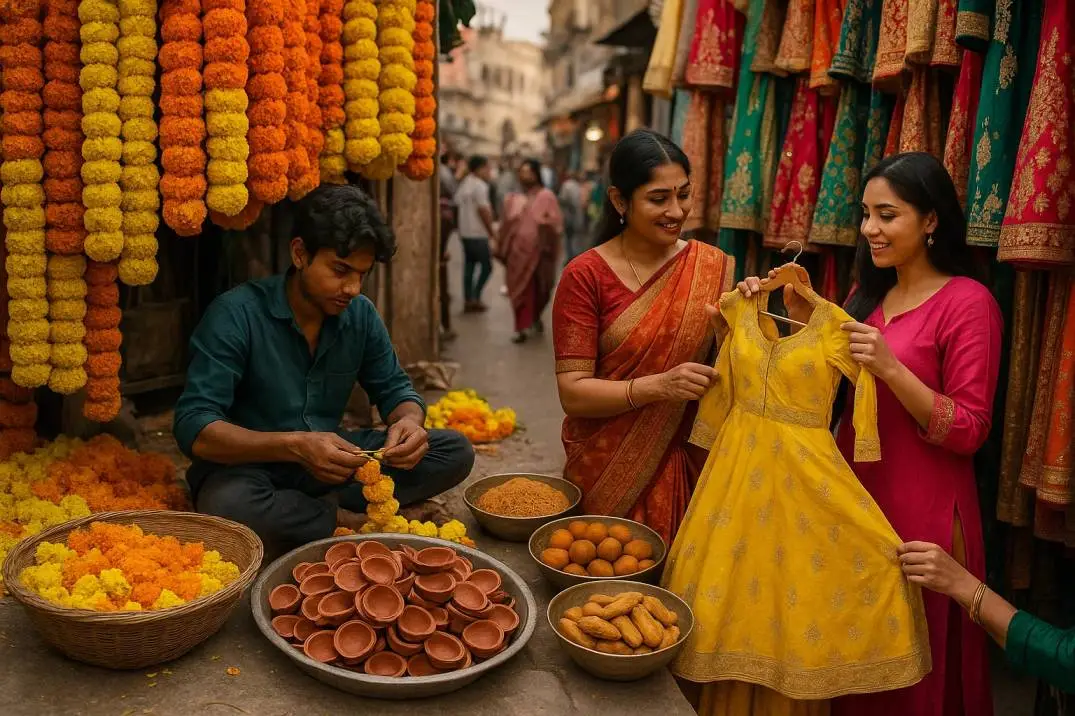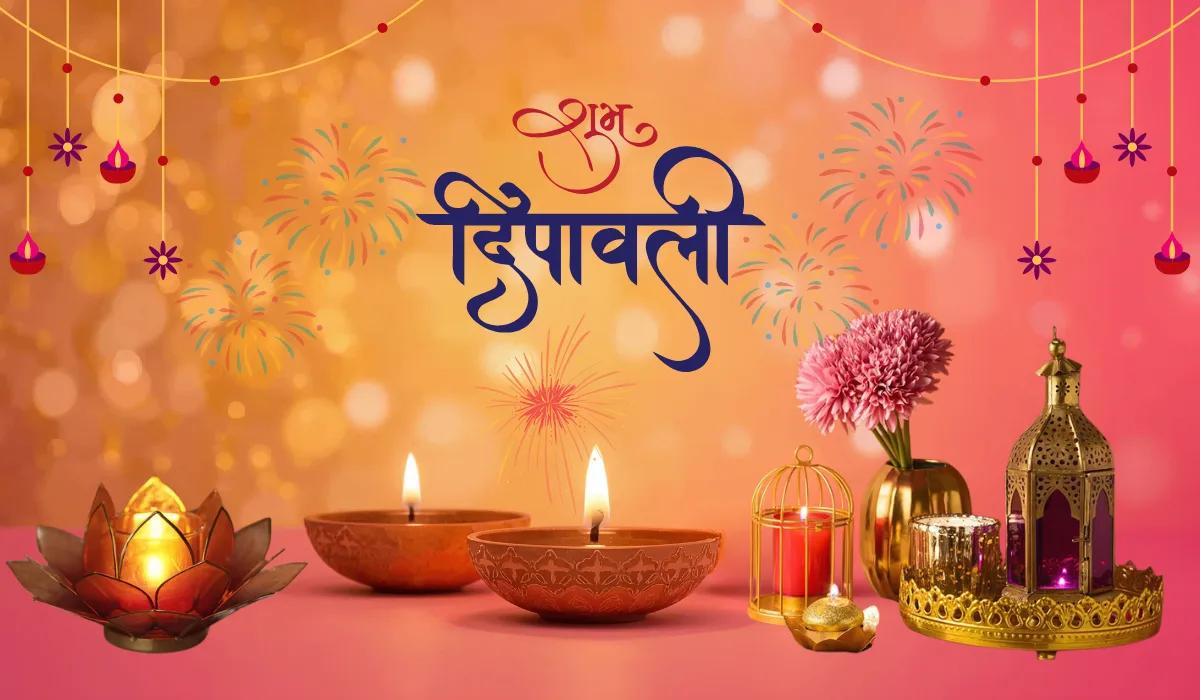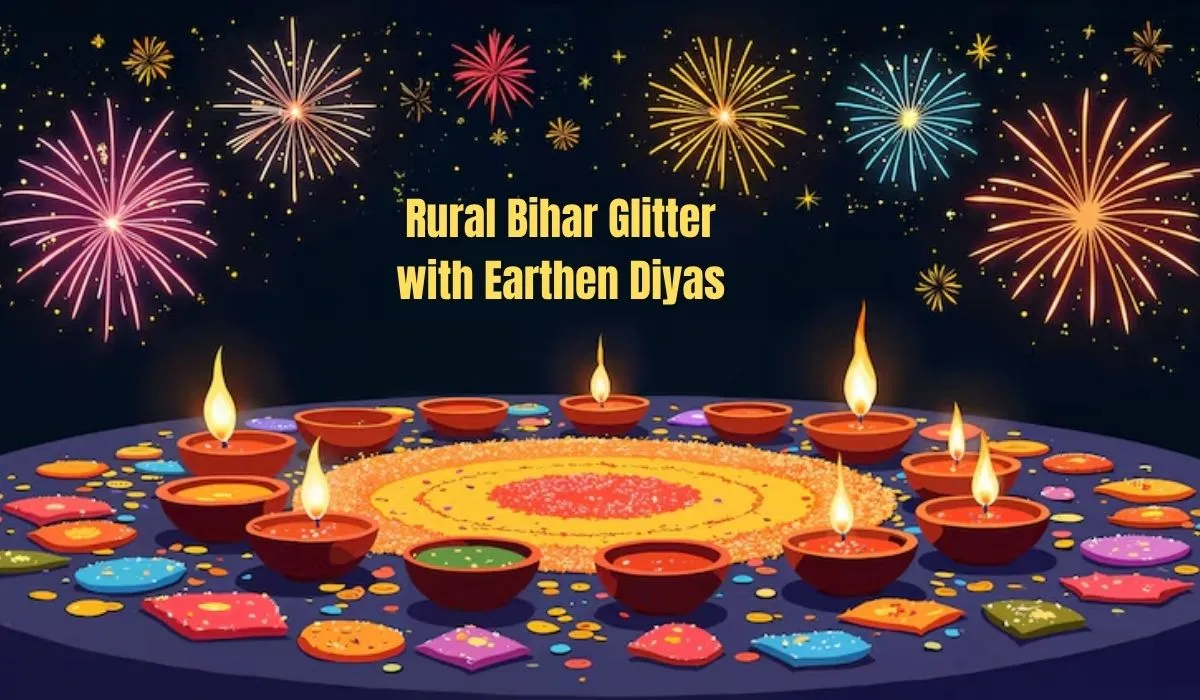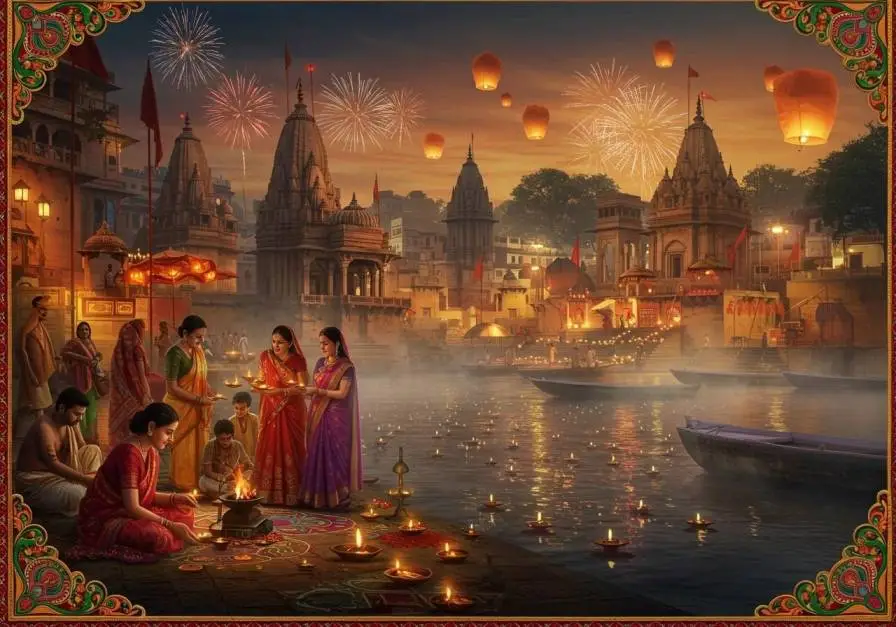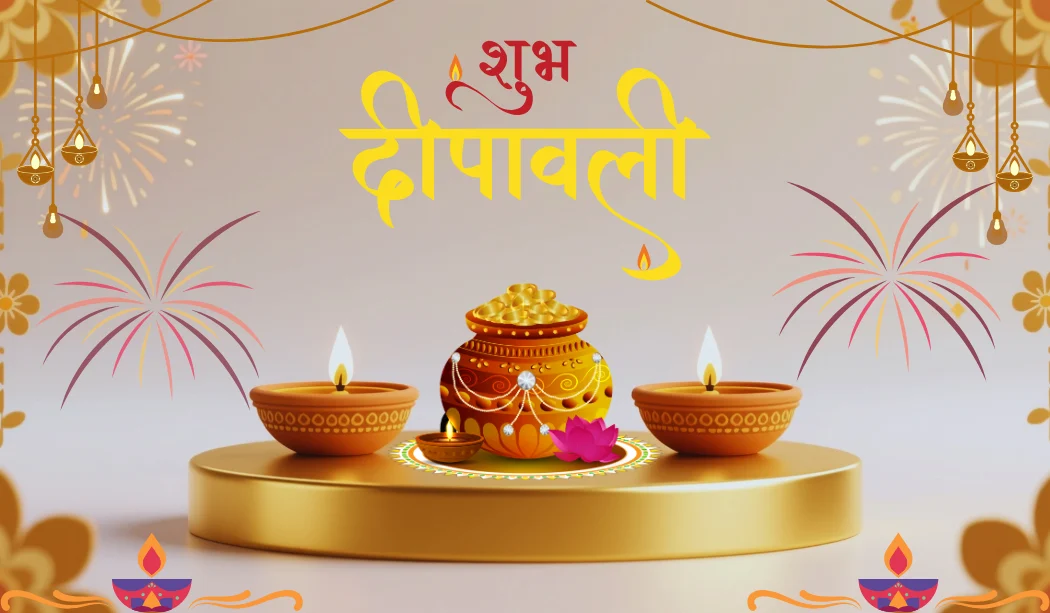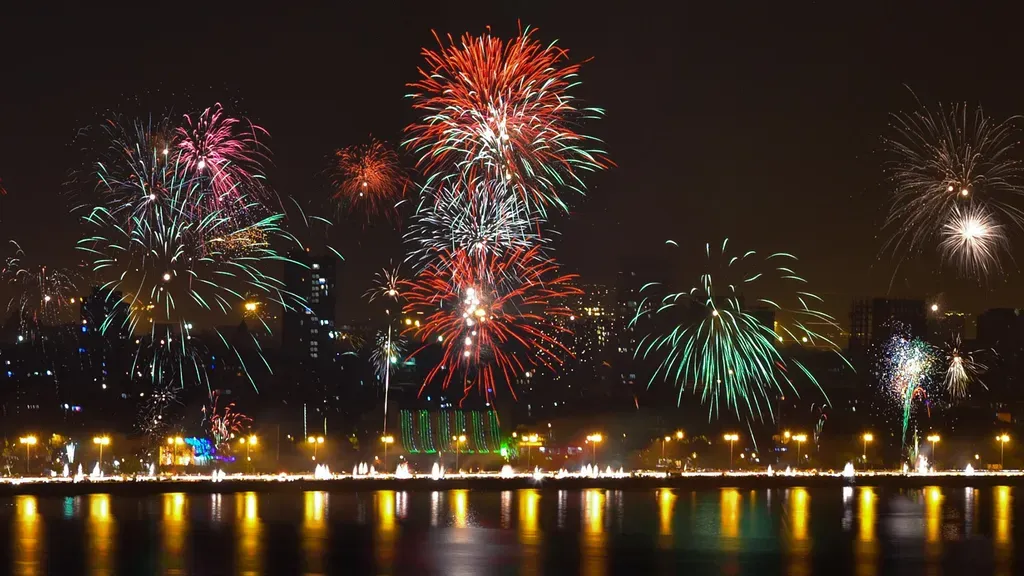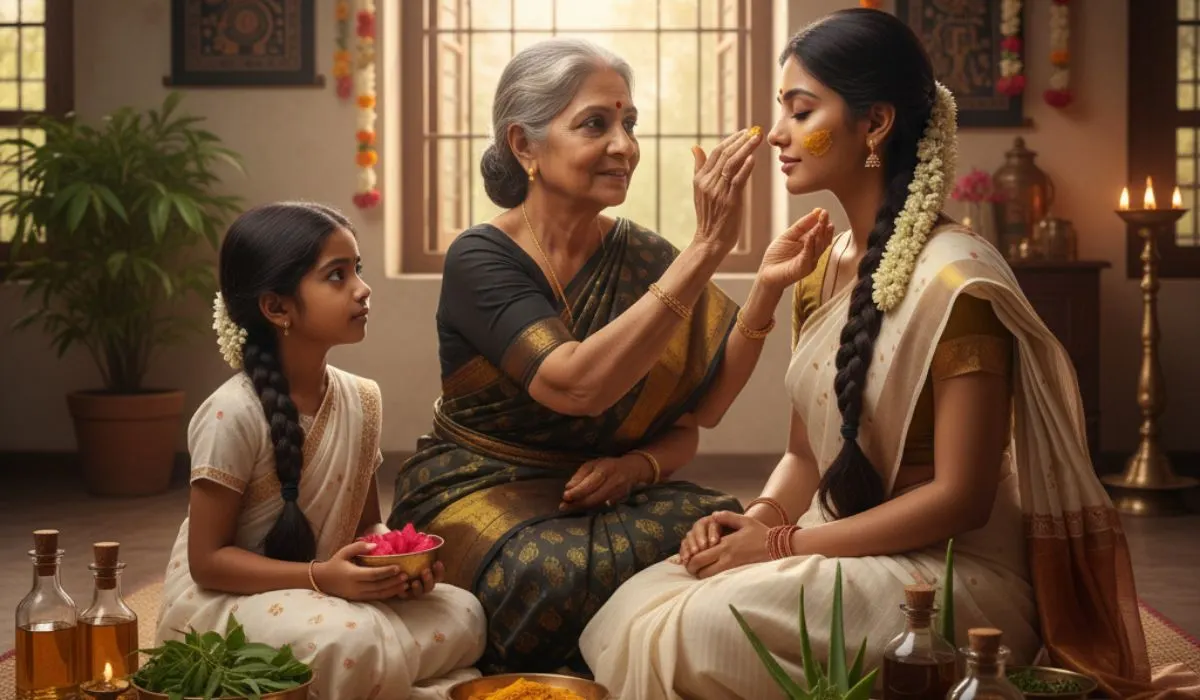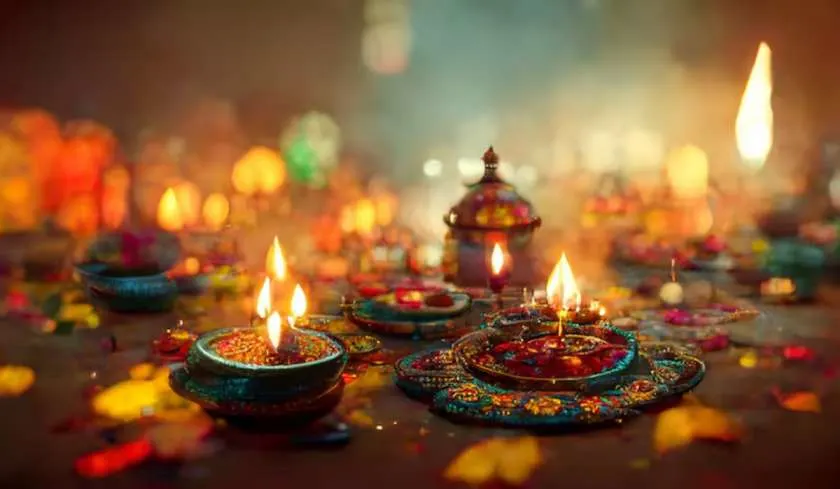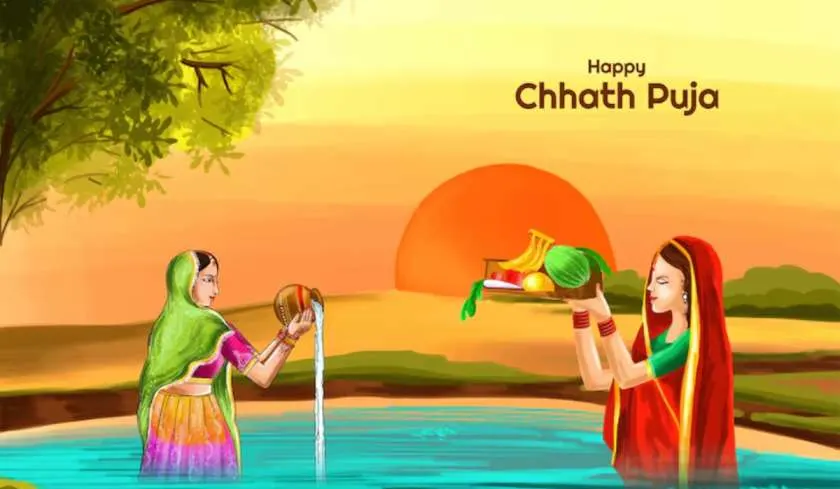Punjab is known for its rich food, bright clothes, and warm people. It is the land of five rivers, strong farmers, and loud celebrations. But today, Punjab is not just about old traditions. Life in Punjab is slowly changing. The way people eat, dress, live, and work is not the same as before.
It is a mix of old habits and new choices. This is a story of how people in Punjab live today. From cities like Ludhiana and Amritsar to small towns and villages, life is moving forward.
Life in Villages and Cities
For a long time, Punjab was all about farming. Most people lived in villages. They worked in the fields from morning till evening. Their life was simple. They ate fresh food, wore traditional clothes, and lived in big joint families.

Now, more people are moving to cities. Young people want jobs in offices or shops. They want to study more and earn money. According to government data, more than 37% of people in Punjab now live in urban areas.
Cities like Chandigarh, Mohali, and Jalandhar are growing fast. Still, many families live in villages. But even there, life is changing. People have smartphones, scooters, and TVs. Some have internet. Children in villages also go to private schools now.
Food: From Butter to Balance
Punjabi food is world-famous. It is full of taste and love. Dishes like sarson da saag, makki di roti, chole bhature, and butter chicken are eaten with pride. In the past, people used a lot of ghee, butter, and cream in their food. Eating full meals with lassi or halwa was common. Farmers needed energy for hard work, so they ate rich food.
Today, many people are eating lighter food. Young people worry about weight and health. In cities, people eat oats, salads, fruits, and low-fat milk. Many have started going to gyms. Some avoid sugar and fried food. Protein shakes and green tea are also common now. Still, most people enjoy desi food on weekends or special days. Food is still a big part of Punjabi life.
Clothes: A Mix of Old and New
Clothes in Punjab have always been colorful. Women wore salwar kameez with phulkari dupattas. Men wore kurta pajama with turbans. In weddings and festivals, people dressed with full style. Now, fashion is changing. Girls wear jeans, tops, or Indo-western clothes. Boys wear T-shirts, jackets, or track pants. During weddings, people wear designer lehengas or gowns. Boys wear suits or sherwanis with modern cuts.
Still, on festivals like Lohri, Baisakhi, or Gurpurab, people wear traditional clothes with pride. Some even order ready-to-wear patiala suits or stitched phulkaris online. In villages, many women still wear traditional suits every day.
Work and Job
Farming is still the main work in many parts of Punjab. But things are changing fast. Fewer young people want to be farmers. The cost of farming is high, and profits are low. Many young people want to move to Canada, Australia, or the UK for jobs. Every year, thousands of students apply for study visas. They hope for a better life abroad. This has become very common in many towns.
Some youth are also starting small businesses in Punjab. They open gyms, salons, mobile shops, or cafes. Girls are opening beauty parlors or clothing stores. A few are working online, doing content creation or social media jobs. Government jobs are still popular, but hard to get. Many study for exams for years. Private jobs are there, but they don’t always pay well.
Family Life: Smaller Homes, Bigger Dreams
Earlier, families in Punjab lived together in large homes. Grandparents, uncles, aunts, and cousins all stayed under one roof. There was always someone to talk to or help. Now, many families have become small. Parents and children often live alone. Some families are split because someone is working in another city or country. Life has become busier.
Still, love for family is strong. People visit each other often. Weddings and birthdays are big celebrations. Even if someone lives in Canada, they try to come home for big events. Respect for elders is still important. Children touch feet of grandparents. Families often eat dinner together, especially in villages.
Free Time and Fun
Punjabi people love fun and music. Earlier, people used to dance bhangra and play dhol during harvest season or weddings. Women sang boliyan and did giddha during gatherings.
Today, people also enjoy movies, mobile games, and social media. Many youth follow Punjabi singers like Diljit Dosanjh, AP Dhillon, or Karan Aujla. TikTok and Instagram are full of dance reels and short videos from Punjab.
In towns, people go to malls, cafes, or cinema halls. Gyms and Zumba classes are common. In villages, cricket and kabaddi are still loved. Some youth do bhangra or yoga in parks. Even old people watch daily soaps on TV or listen to Gurbani on YouTube.
Health and Problems
With changes in lifestyle, some problems have also come. Many people eat too much oily or sweet food. This leads to health issues like obesity, sugar, or heart disease. Many young people are also stressed because of studies or job pressure.
One big worry in Punjab is drug addiction. In some areas, youth fall into drug use. It hurts families and futures. The government and NGOs are trying to help. There are rehab centers and awareness programs, but more is needed. Mental health is also a concern. People feel lonely or sad but don’t talk about it. Slowly, people are learning that it’s okay to ask for help.
Women’s Role Is Growing
In earlier times, many women stayed at home. They took care of the house and children. But now, more girls go to college and work outside. Women are becoming doctors, teachers, police officers, and business owners. Some drive autos, run shops, or manage farms.
Still, there are problems. In some villages, girls are married early. Some families don’t allow daughters to work or study far. But change is coming slowly. More parents now want to educate their daughters and see them succeed.
Technology and the Internet
Mobile phones are everywhere in Punjab now. Even in villages, people have smartphones. Children use them for online classes. Farmers watch farming videos or check weather apps. Housewives watch cooking videos.
Internet has changed life. Many shops take online orders. People send money by UPI. Social media is part of daily life. But it also causes problems. Children spend too much time on screens. Family talk time is less. There are also risks of fraud and fake news.
Holding on to Culture
Even with all the changes, Punjab’s culture is still alive. People still speak Punjabi with pride. They sing folk songs, wear traditional clothes on special days, and celebrate festivals with joy. Every village still has a gurdwara, where people gather for prayer and langar. Gurpurabs, Lohri, Diwali, and Baisakhi bring the whole community together.
Young people are now learning bhangra, folk music, and phulkari art in cultural centers. Schools are teaching children about local history and language. This helps keep the roots strong.
Life in Punjab is changing, just like the rest of the world. But it is changing in its own way. The state is trying to balance old values with new needs. People want progress, but they also love their traditions. There is pride in wearing a patiala suit and also in running a startup. There is joy in drinking lassi, and also in sipping coffee at a cafe.
Punjab’s lifestyle today is a blend. It is about modern dreams and old stories. It is about moving forward without forgetting where you come from. And that is what makes Punjab — loud, loving, and always full of life.



